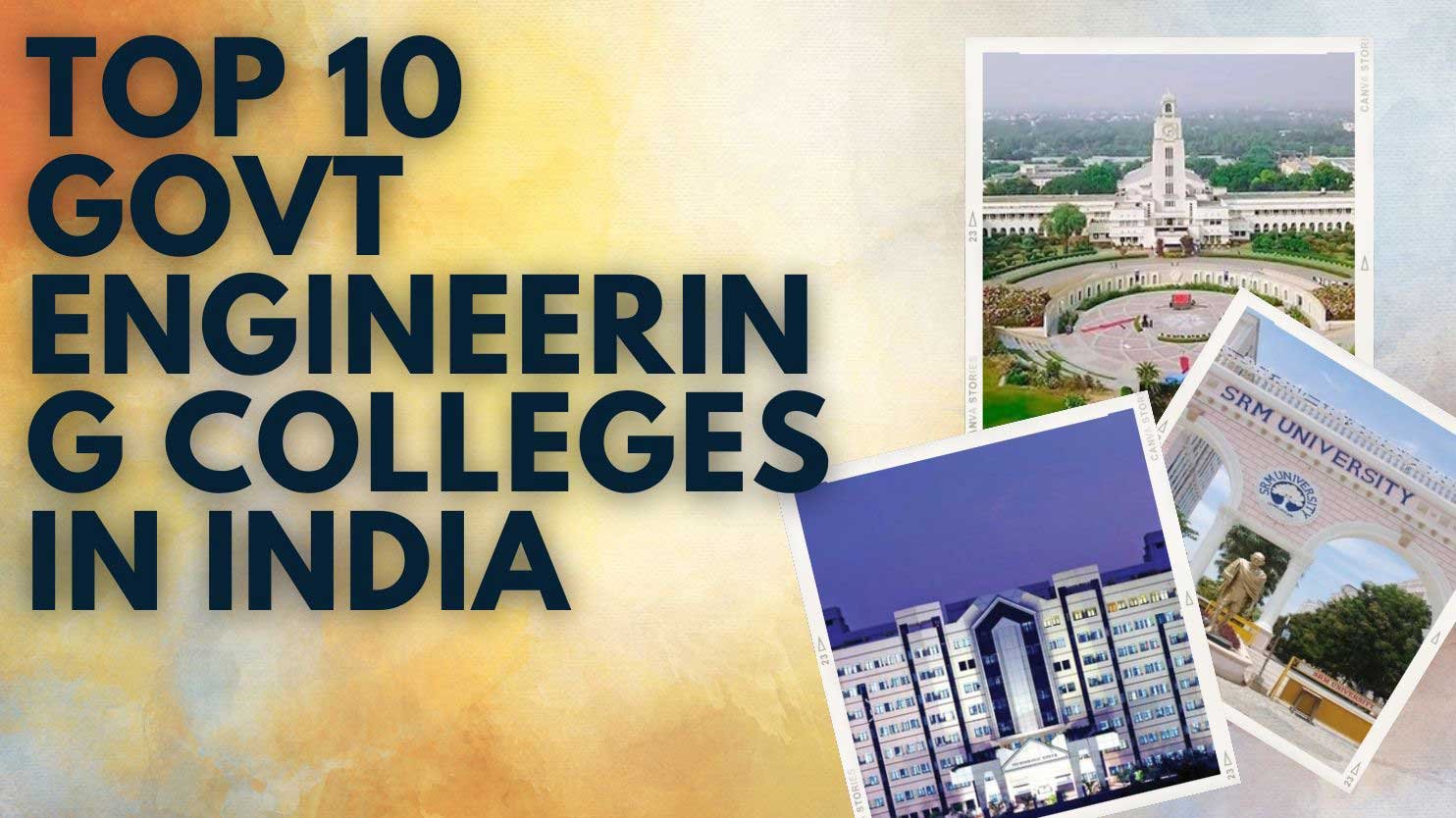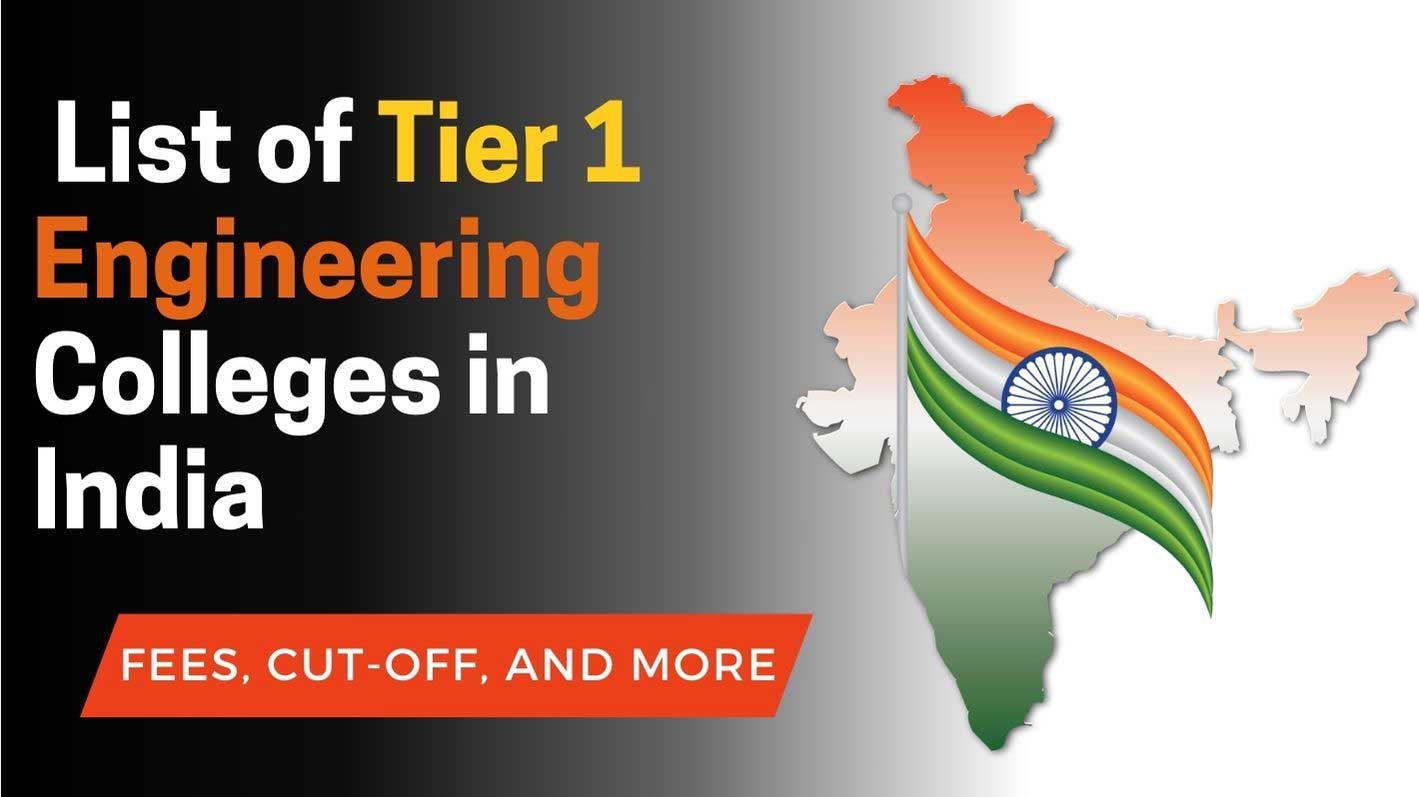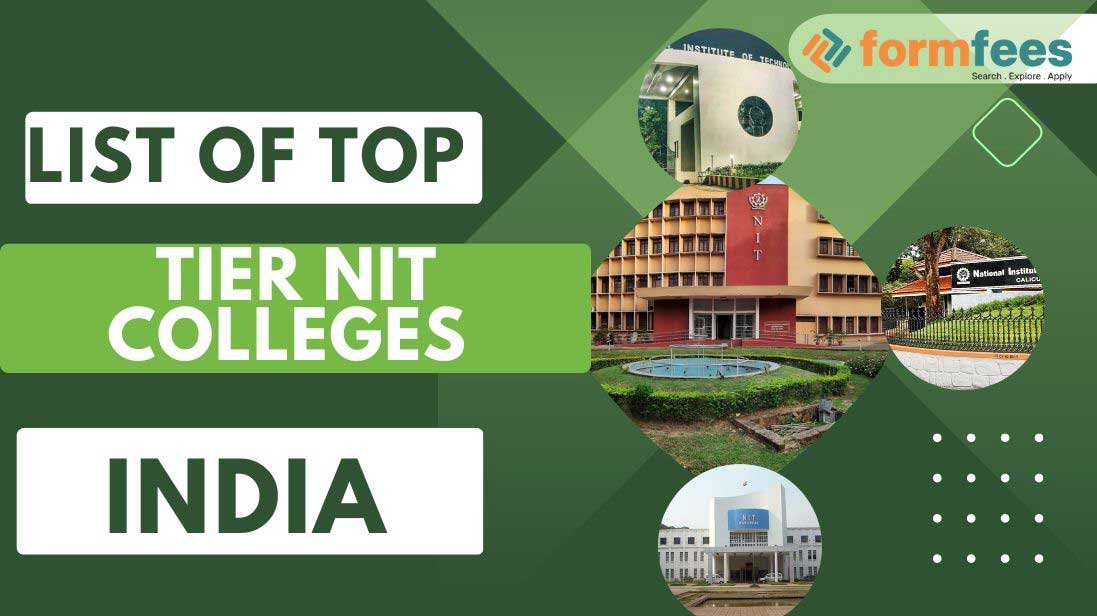Table of Contents
ENGINEERING COURSES
India produces the most number of young, talented Engineers every year. Engineering is a stream of education that involves the application of Science, Technology, and Mathematics. Inclusion of these into the curriculum is done to innovate, design, develop and maintain machines, structures, software, hardware, and systems & processes. The field of Engineering provides a variety of career opportunities across all industries. The duration of all engineering courses in India is of 4 academic years. Engineering is the most opted course by students, especially of Science stream after 12th. The bachelor’s degree in Engineering is called B.Tech.
In recent years the engineering sector has become the largest of the industrial sectors in India. Over the last few years, the engineering sector in India has seen remarkable growth that is locomoted by increased investment in infrastructure and industrial production. to add to that, since engineering is closely related to the manufacturing and infrastructure sectors, it is of utmost strategic importance to India’s economy. To improve its status to emerge as a global superpower, India has taken prominent steps in developing its engineering sector. Engineering in India accounts for 27% of the total factories in the industrial sectors and represents 63% of the overall foreign collaborations. In a bid to promote goods, products, and services that are products of engineering in India, the Government of India has appointed Engineering Export Promotion Council (EEPC) as the apex body.
India is also one of the leading exporters of transport equipment, capital goods, other machinery/equipment, and light engineering products such as castings, forgings, and fasteners to various countries of the world.
India even became a permanent member of the Washington Accord (WA) on 13th June 2014. There are 17 countries, that are permanent signatories and India is one of them. It is an elite international agreement on engineering studies and the mobility of engineers.
India is known for high-quality technical education and research facilities of international standards. The IITs, NIT, and other prestigious colleges for Engineering are highly competitive. With infrastructure investment booming in India and rapid growth of the manufacturing sector which is experiencing a paradigm shift with innovation, cost reduction, and productivity leaps having taken center stage in Indian industry, there is great demand for professionally qualified mechanical engineers. At this moment, engineering is in high demand in India as an education, and career option.
ENGINEERING COURSES LIST :
ENGINEERING COURSES AFTER 12th :
Top engineering courses in India that are opted for and chosen the most by students after 12th are – Computer Science and Engineering, Mechanical Engineering, Electronics and Communication, Electrical Engineering and Electrical and Electronics. Other engineering courses after 12th are
- B.E/B.Tech in Computer Science Engineering
- B.E/B.Tech in Mechanical Engineering
- B.E/B.Tech in Electronics and Communication Engineering
- B.E/B.Tech in Electrical Engineering
- B.E/B.Tech in Electrical and Electronics Engineering
- B.E/B.Tech in Civil Engineering
- B.E/B.Tech in Chemical Engineering
- B.E/B.Tech in Information Technology
- B.E/B.Tech in Instrumentation and Control Engineering
- B.E/B.Tech in Electronics Engineering
- B.E/B.Tech in Electronics and Telecommunication Engineering
- B.E/B.Tech in Petroleum Engineering
- B.E/B.Tech in Aeronautical Engineering
- B.E/B.Tech in Aerospace Engineering
- B.E/B.Tech in Automobile Engineering
- B.E/B.Tech in Mining Engineering
- B.E/B.Tech in Power Engineering
- B.E/B.Tech in Production Engineering
- B.E/B.Tech in Biotechnology Engineering
- B.E/B.Tech in Genetic Engineering
- B.E/B.Tech in Plastics Engineering
- B.E/B.Tech in Food Processing and Technology
- B.E/B.Tech in Agricultural Engineering
- B.E/B.Tech in Environmental Engineering
- B.E/B.Tech in Dairy Technology and Engineering
- B.E/B.Tech in Agricultural Information Technology
- B.E/B.Tech in Infrastructure Engineering
- B.E/B.Tech in Motorsport Engineering
- B.E/B.Tech in Metallurgy Engineering
- B.E/B.Tech in Textile Engineering
- B.E/B.Tech in Marine Engineering
- B.E/B.Tech in Naval Architecture
- B.E/B.Tech in Geoinformatics
- B.E/B.Tech in Petrochemical Engineering
- B.E/B.Tech in Polymer Engineering
- B.E/B.Tech in Geotechnical Engineering
- B.E /B.Tech in Nuclear Engineering
TOP ENGINEERING COURSES :
TOP 10 ENGINEERING COURSES :
Engineering is an existing and ever expanding industry that will never go out of demand especially in a country like India. So, here are Top 10 Engineering Courses that are going to be the most in demand in the coming future –
- Mechanical Engineering
- Nanotechnology
- Civil Engineering
- Chemical Engineering
- Marine Engineering
- Information Security
- Biomedical Engineering
- Machine Learning and Artificial Intelligence
- Robotics Engineering
- Biochemical Engineering
COMPUTER SCIENCE ENGINEERING COURSES :
Computer Science Engineering is a branch of engineering that deals with design, implementation, and management of information systems of both software & hardware processes. A computer scientist expert is a person who specializes in theory of computation and design of computational systems. Computer Science engineering deals with various disciplines – electrical and electronics engineering, information technology, software engineering, and more.
Computer Science Engineering courses are available in both Undergraduate and Postgraduate levels. In Undergraduate level, the degree provided is – B.E, B.Tech. and in Postgraduate level, the degree provided is – M.Tech.
After completing a degree program, job profiles available and offered to Computer Science Engineers are mainly entry-level jobs. Jobs mainly come from IT industry and other tech related companies. Candidates are offered jobs based on their knowledge on – programming, database management, data structures, etc.
Top Computer Science Engineering Courses are – B.Tech Electrical and Communications Engineering
- B.Tech in Information Technology
- B.Tech in Information and Communication Technology
- B.Tech in Computer Science Engineering
- B.Tech in Electronics Engineering
- B.Tech in Software Engineering
- B.tech in Artificial Intelligence
TYPES OF ENGINEERING COURSES :
ENGINEEING ALL COURSES :
ENGINEERING COURSES IN INDIA :
- Computer Science Engineering (CSE)
- Electronics and Communications Engineering (ECE)
- Mechanical Engineering (ME)
- Information Technology (IT)
- Electrical and Electronics Engineering (EEE)
- Civil Engineering (CE)
- Chemical Engineering (CHE)
- Aeronautical Engineering (AE)
- Biotech Engineering (BTE)
- Instrumentation and Control Engineering (ICE)
- Automotive Engineering (AME)
- Aerospace Engineering (ASE)
- Mechatronics Engineering (MTE)
- Production and Industrial Engineering (PIE)
- Mining Engineering (MNE)
- Petroleum Engineering (PE)
- Ocean and Marine Engineering (OME)
- Biomedical Engineering (BMD)
- Structural Engineering
- Architectural Engineering
- Computer Engineering
- Robotics Engineering
- Microelectronic Engineering
- Environmental Engineering
- Agricultural Engineering
- Paper Engineering
- Sustainability and Design Engineering
- Systems Engineering
- Geological Engineering
- Nuclear Engineering
- Geomatics Engineering
- Textile Engineering
- Nanotechnology Engineering
- Naval Engineering
- Fire Protection Engineering
- Motorsport Engineering
ENGINEERING COURSES & FEES :
| NAME OF COURSE | FEES (INR) |
|---|---|
| Mechanical Engineering | 20,000 - 2 lakh per annum |
| Nanotechnology | 2 lakh – 13 lakh |
| Civil Engineering | 3 lakh – 7 lakh (govt) 6 lakh – 14 lakh (private) |
| Chemical Engineering | 4 lakh – 10 lakh (govt) 7 lakh – 20 lakh (private) |
| Marine Engineering | 15,000 to 15,00,000 per annum. |
| Information Security | 50,000 – 2,00,000 per annum |
| Biomedical Engineering | 25,000 - 2 lakhs per annum |
| Machine Learning and Artificial Intelligence | 10,000 - 5,00,000 per annum |
| Robotics Engineering | 70,000 - 2 lakh per annum |
| Biochemical Engineering | 55,000 – 4 lakh per annum |
ENGINEERING COURSES WITHOUT MATHS :
To a controversial move, The All India Council for Technical Education (AICTE) has made
removed the mandatory need to take up Mathematics and Physics in 12th for Engineering aspirants. It has made it optional to choose Mathematics and Physics in 12th to get admission to BE and B.Tech courses from 2021-2022. Instead, students have the option to choose any three subjects from – Mathematics, Physics, Chemistry, Biology, Computer Science, Electronics, IT, Biotechnology, Information Practices, Technical Vocational Subject, Agriculture, Engineering Graphics, Business Studies, Entrepreneurship. Thus changing the eligibility criteria for Undergraduate degree for Engineering.
Some Engineering courses that are solely based on Mathematics –
- Data Science
- Artificial Intelligence
- Machine Learning
ENGINEERING COURSES IN NIGERIA :
- Production Engineering
- Agricultural and Bio-Resources Engineering
- Food Science and Engineering
- Project Management Technology
- Food Technology
- Gas Engineering
- Software Engineering
- Biomedical Engineering
- Chemical / Petrochemical Engineering
- Systems Engineering
- Civil Engineering
- Transportation and Management Engineering
- Hydrology / Civil Engineering
- Computer Engineering
- ICT Engineering
- Urban and Regional Planning
- Irrigation Engineering
- Water Resources and Environmental Engineering
- Industrial Design
- Computer and Information Science
- Industrial Production and Engineering
- Communication Technology
- Information Technology
- Marine Engineering
- Communication and Multimedia Design
- Maritime Management Technology
- Materials and Production Engineering
- Electrical Engineering
- Mechanical Engineering
- Electronics Engineering
- Mechatronics Engineering
- Electrical / Electronics / Computer Engineering
- Metallurgical and Material Computer Engineering
- Environmental Management
- Metallurgical Engineering
- Environmental Engineering
- Mining Engineering
- Environmental Management Technology
- Naval Architechture
- Petroleum Engineering
ENGINEERING COURSES IN KNUST :
- BSc Agricultural Engineering
- BSc Chemical Engineering
- BSc Civil Engineering
- BSc Geomatic Engineering (Geodetic Engineering)
- BSc Materials Engineering
- BSc Mechanical Engineering
- BSc Electrical & Electronic Engineering
- BSc Computer Engineering
- BSc Aerospace Engineering
- BSc Petroleum Engineering
- BSc Telecommunication Engineering
- BSc Geological Engineering
- BSc Biomedical Engineering
- BSc Petrochemical Engineering
- BSc Metallurgical Engineering
ENGINEERING COURSES IN KENYA :
- Chemical Engineering
- Civil Engineering
- Computer Engineering
- Electrical Engineering
- Mechanical Engineering
ENGINEERING COURSES IN THE PHILIPPINES :
- Industrial Engineering
- Chemical Engineering
- Electrical Engineering
- Civil Engineering
- Geodetic Engineering
- Electronics and Communications Engineering
- Mechanical Engineering
- Computer Engineering
- Aeronautical Engineering
- Marine Engineering
ENGINEERING COURSES IN TAMILNADU :
- B.E. Civil Engineering
- B.E. Computer Science and Engineering
- B.E. Electronics and Communication Engineering
- B.E. Electrical and Electronics Engineering
- B.E. Mechanical Engineering
- B.Tech. Information Technology
- B.E.Biomedical Engineering
- B.Tech.Chemical Engineering
- B.Tech.Biotechnology
MECHANICAL ENGINEERING COURSES :
Mechanical Engineering is a branch of engineering that deals with machines. It is mainly concerned with machine production, design, and operation. In industries – energy conversion, biotechnology, computers, electronics, aerospace, etc Mechanical Engineers play a key role.
Forming an idea of a product, executing it, producing it, and releasing it in the market is what a Mechanical Engineer’s job is. The market, demand for the product, nature of the target audience, durability, aesthetics, functionality all these have to be kept in mind to make/design a product or a system that will bring an evolution to win the market.
Mechanical Engineering delves deep into the matter in courses offered around the globe that opens a good number of career options to students. It teaches students analytical and creative skills. Thus after they get a degree/pass out they are able to design a system or product, analytical tools, teamwork skills to design, produce and market a system.
Mechanical Engineering Course subjects are as follows –
- Material Science and Engineering
- Engineering Mechanics
- Heat Transfer
- Fluid Mechanics
- Machine Drawing
- Fluid Machinery
- Kinematic Analysis and Synthesis
- Workshop Practice
- Manufacturing Processes
- Applied Mechanics Lab
- Machining Technology and Metrology
- Dynamics of Machines
- Metrology and Metallography Lab
- Electrohydraulic Control Systems
- Measurement and Instrumentation
- Steam Power Plant
CIVIL ENGINEERING COURSES :
Civil Engineering is a branch of engineering that delas with Infrastructures. It is mainly concerned with planning, designing, constructing, maintaining and supervising infrastructures. While dealing with this, other areas of concerns that come into play – ifacilities essential to modern life like highways, bridges and tunnels, schools, hospitals, airports and other buildings, sewage systems and water treatment facilities. Civil Engineering also caters to protection of the public and environmental health as well as improving existing infrastructure.
Infact a new research report by Global Market Insights, Inc, suggests that the Civil Engineering Market size is expected to grow up to USD 11.72 trillion by 2025.
Civil Engineering Course subjects are as follows –
- Construction Engineering
- Coastal and Ocean Engineering
- Geotechnical Engineering
- Fire protection engineering
- Structural Engineering
- General Engineering
- Bridge Engineering
- Irrigation Engineering
- Land development
- Materials Engineering
- Transportation engineering
- Urban Engineering
- Hydraulic Engineering
- Water resources Engineering
- Environmental Engineering
ELECTRICAL ENGINEERING COURSES :
ENGINEERING ELECTRICAL COURSES :
Electrical Engineering is a branch of engineering that deals with the technology of electricity. It is mainly concerned with the study of application of electricity, electronics and electromagnetism. This branch of engineering works with energy. This energy can exist in any form – gas, fuel cell, turbine, hydro, solar, wind or geothermal energy. An Electrical Engineer’s job is to utilize and distribute these energies out from their sources to our factories, home, hospitals, school, offices, and households.
Electrical Engineering is a field / branch of engineering, which again has some subfields –
- electronics
- digital computers
- power engineering
- telecommunications
- control systems
- radio-frequency engineering
- signal processing
- instrumentation
- microelectronics
Eectrical Engineering Course subjects are as follows –
- Electro – magnetism
- Control Systems
- Electricity Technology and Machines
- Circuit Analysis, Electronics
- Electrical Engineering Material
- Transmission and Distribution
- Instrumentation
- Microprocessor Interfacing
- Power Engineering
- Thermodynamics
The branch of Electrical Engineering is mainly divided into two major sections – Power & Telecommunication. So Power Engineers and Telecommunication Engineers play the key role in a professional field. The kind of job profiles that are opted by and available to Electrical Engineering graduates are –
- Control And Instrumentation Engineer
- Broadcast Engineer
- Design Engineer
- Electronics Engineer
- Electrical Engineer
- Nuclear Engineer
- Systems Analyst
- Consultant
SOUND ENGINEERING COURSES :
Sound Engineering is a branch of engineering that deals with recording, mixing, editing, adding effects to audio files, curating, reproducing and sound equalization and electronic effects. Sound Engineering is basically creating art with the help of technology. But Sound Engineering is not only restricted to music, it is also actively and largely used in – digital games, television, radio, and film industry.
Unlike other fields of Engineering, Sound Engineering lets a graduate work in other sectors like the entertainment and media other than IT. To briefly say, there are three primary jobs of a Sound Engineer –
- Track editing
- Track mixing
- Track mastering
Sound Engineering Course subjects are as follows –
- Fundamentals of Audio Production
- Technical & aesthetic aspects of Sound
- Recording, editing, and mixing sound
- Recording technology, from analogue tape to digital multitask recording programmes like Ableton or Protools
- Basic production techniques (camera, mic, and other related equipment)
- Foley recording & Dubbing
- Sound manipulation techniques
- Training in listening & analysing sound
AUTOMOTIVE ENGINEERING COURSES :
Automotive Engineering is a branch of mechanical engineering that deals with the application, design, and manufacture of various types of automobiles. It is mainly concerned with the important component of the automobile industry. An Automotive Engineer’s job is to design/make/produce new vehicles and update the existing ones up to the mark so that it provides safety to users. Automotive Engineering is especially very research-centric. Core subjects of Automotive Engineering include Mathematics and Physics whose direct application is much needed in the design and production of vehicles.
Job/responsibility of an Automotive Engineer is to –
- prepare design specifications: pre-production stage
- research, develop and produce new vehicles
- use computerized models to determine the behavior and efficiency of a vehicle so that it works fine when commercially sold/used.
- investigate instances of product failure to avoid dangers in the future
- prepare cost estimates for current or new vehicles depending on quality of parts and labor put into the vehicle.
- assess the safety and environmental aspects of an automotive project/vehicle.
- create plans and drawings for new vehicle products
Automotive Engineering Course subjects are as follows –
- Technical English
- Mathematics
- Engineering Physics
- Engineering Chemistry
- Engineering Graphics
- Basic Electrical and Electronics Engineering
- Fundamentals of Computing and Programming
- Engineering mechanics
- Statistics and Numerical Methods
- Engineering Thermodynamics
- Engineering Metals and Metallurgy
- Environmental Science and engineering
- Principles of Management
- Automotive Transmission
- Composite Materials
- Vehicle Dynamics
- Marketing Management
- Robotics
- Automotive Safety
- Automotive Pollution and Control
- Production Technology
- Automotive Chassis
- Automotive Engines
DATA ENGINEERING COURSES :
Data Engineering is a branch of engineering that deals with designing and building systems for collecting, storing, and analyzing data at scale. It is mainly concerned with the building of systems that collect, manage, and convert raw data into usable information for later interpretation by experts.
A Data Engineer’s job is to collect massive amounts of data, to make sure that the data is in a highly usable state by the time it reaches the data scientists and analysts. Their goal is to organize important data in such a usable manner that it can be used by the organization for better performance and maximizing the profit.
A Data Engineer’s job might include :
- Acquiring datasets that align with business needs / according to company’s requirements
- Develop algorithms to transform data into useful, actionable information for later interpretation
- Build, test, and maintain database pipeline architectures
- Collaborate with management to understand company objectives
- Create new data validation methods and data analysis tools beneficial to the organization
- Ensure compliance with data governance and security policies for better coordination.
Data Engineering Course subjects are as follows –
Introduction –
- Python Fundamentals
- Analyzing & Exploring Data
- Intro to the Cloud
- Linux
- Data Gathering – working with
- APIs + Scraping
- Serving data with APIs
Software Engineering –
- Write and Deploy a Web Service
- Continuous Integration and Deployment
- Testing methodologies
- Networking
- Jenkins & Docker
- Microservices & Kubernetes
- Software Engineering Best Practices
SQL –
- Data Modeling & ERD
- SQL Operations & Functions
- Stored Procedures
- Query Optimization and profiling
- Extract, Transform and load
- Transactions & ACID
BIOMEDICAL ENGINEERING COURSES :
Biomedical Engineering is a branch of engineering that deals with innovating newer equipment and technologies which can enhance human health and health care in a holistic manner. It is mainly concerned with theoretical and practical knowledge of biomedical signal processing, design, and development of medical equipment and diagnosis devices, stem cell engineering, etc.
Biomedical Engineering Course subjects are as follows –
- Biomedical Imaging System
- Biomedical Devices
- Diagnostic and Therapeutic Equipment
- Sensors and Transducers in Healthcare
- Rehabilitation Engineering
- Biomechanics
- Cellular Physiology
- Applied Mathematics
- Digital Signal Processing
- Systems Physiology
ENGINEERING SOFTWARE COURSES :
Software Engineering is a branch of engineering that deals with design, development and maintenance of software. It is mainly concerned with Software Development. Software Engineering mainly includes – computer science, software development, and basic IT. In a Software Engineering course, the areas that are mainly emphasized are – Engineering, Computer Science, Programming, Machine Learning, Big Data, and Mathematics.
Jobs opted by and available to Software Engineers are –
- Software Engineer
- Software Tester
- Game Developers
- Android Developers
- Java Developers
Software Engineering Course subjects are as follows –
- Computer Science
- Mathematics
- Programming
- Engineering
- Machine Learning
- Big Data
ENGINEERING MANAGEMENT COURSES :
Engineering Management is an integration of MBA and Engineering. Unlike other conventional Engineering courses, Engineering Management can be done in Post-Graduation level only – that gets graduates a Master’s Degree. Engineering Management is also commonly and popularly called ‘Engineer’s MBA’. This degree basically sharpens one’s business shrewdness along with the know-how of technology to rightfully implement it in practical.
A Engineering Management graduate has the ability to move to higher managerial role with a technology core. Job roles / positions that are opted by and available to Engineering Management graduate are – operations, data analytics, product management, marketing management, consulting, performance analytics, quality control, etc.
Engineering Managenent Course subjects are as follows –
- Computer Simulation for Risk & Operational Analytics
- Project Management
- Product Management
- Manufacturing Management
- Systems Engineering and Architecture
- Environmental Systems Analysis, Economics & Public Policy
- Applied Machine Learning
- Data Science for Business Intelligence
- Operations and Supply Chain Management
- Technology Development and Commercialization
- Core or compulsory courses vary with universities but the popular ones include Leadership and Organizational Behavior, Strategic Management, Accounting, and Finance, etc.
Frequently Asked Question (FAQs)
Which college is the best for pursuing engineering in India?
As India is a country that appreciates the study of engineering, many colleges or institutions provide this course study. India Institute of Technology, also known as IITs, and Birla Institute of Technology, are among the best engineering institutions in India.
Which are the main subjects of engineering?
Engineering includes all aspects of various subjects related to technology, machine, designing, which are the essence of engineering, communication techniques, mathematics, physical science, advanced technology application, software designing, coding, electronic circuits, artificial intelligence, are some of the core subjects in engineering. However, the subjects may vary according to the course of engineering pursued.
Which is best engineering course for future?
Best Engineering Courses for Future
- Aerospace Engineering.
- Chemical Engineering.
- Electrical and Electronics Engineering.
- Petroleum Engineering.
- Telecommunication Engineering.
- Machine Learning and Artificial Intelligence.
- Robotics Engineering.
- Biochemical Engineering.
What are the 4 main engineering?
In broad terms, engineering can be divided into four main categories – chemical, civil, electrical and mechanical engineering.
What subjects do I need to study for engineering?
Students seeking admission to engineering colleges will have to pass Class 12 with any of the three following subjects:
- Physics.
- Chemistry.
- Mathematics.
- Biology.
- Computer science.
- Electronics and IT.
- Information practices.
- Technical vocational subject.
Which engineer has highest salary?
What are the Highest Paying Engineering Jobs?
- Engineering Manager. Median Salary: $144,830.
- Computer Hardware Engineer. Median Salary: $117,220.
- Aerospace Engineer. Median Salary: $116,500.
- Nuclear Engineer.
- Chemical Engineer. …
- Electrical & Electronics Engineer. …
- Construction Manager. …
- Materials Engineer.
Which engineer is most in demand?
The Most In-Demand Engineering Jobs in 2020
- Automation and Robotics Engineer.
- Alternative Energy Engineer.
- Civil Engineer.
- Environmental Engineer.
- Biomedical Engineer.
- Systems Software Engineer.
Which is king of engineering?
Mechanical engineering
Mechanical engineering is considered to be the royal branch of engineering as it is the 2nd oldest branch after civil engineering.
Which is the toughest branch in engineering?
Hardest Engineering Majors
- Electrical Engineers are primarily focused on the physics and mathematics of electricity, electronics, and electromagnetism. …
- Students consider electrical engineering to be the toughest major mostly because of the abstract thinking involved.
What are the subjects in computer science engineering (CSE)?
Major topics included in any CSE undergraduate degree course are Operating System, Design and Analysis of Algorithm, Programming Languages, Microprocessor, Computer Software, Database Management System, Mobile Communications, Cryptography and Network Security, Performance Evaluation, etc.
What is the difference between computer science and computer engineering?
Computer Science is more about deeper basic knowledge of the field, while computer engineering combines innovation and technology. Computer engineers build hardware while computer scientists generally do not.
How many years does it take to become an engineer?
It takes four to five years to become an engineer.
Engineering degrees are followed by post-education examinations, specialization, supervised training, and continued education. It can take 8-12 years for advanced engineering degrees. You can study for two years and earn an associate’s degree in engineering technology.
Can I finish engineering in 3 years?
A person who has a diploma in engineering can complete b. tech in just 3 years. Unless you don’t have any back papers. So for taking a diploma it will take 3 years and another 3 for b.
Is Jee compulsory for BTech?
No, It is not mandatory to give JEE exam for B. TECH. There are many institutes in which you can take direct admission on the basis of your 12th score.
What is full form EEE in engineering?
Electrical and Electronics Engineering (EEE) is a popular engineering course that imparts knowledge related to electrical and machine technology, circuit analysis, telecommunication systems, power engineering and its related industries.


















